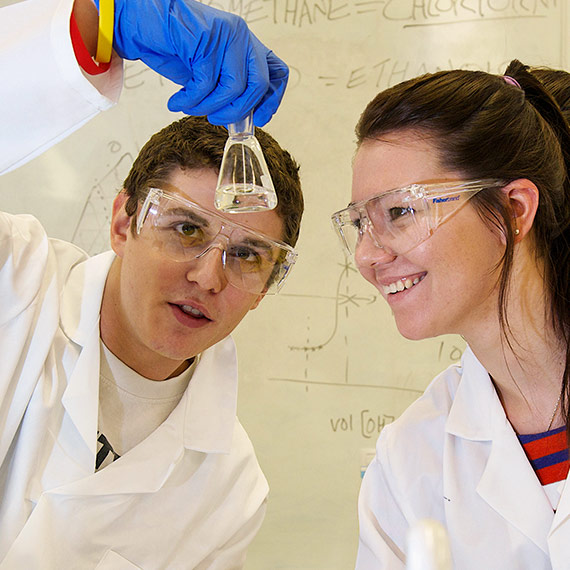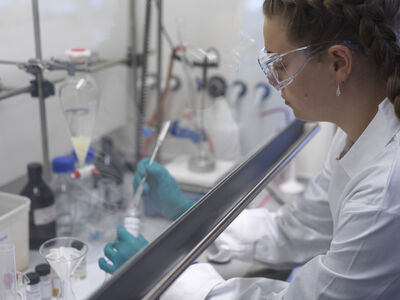Outreach talks
To compliment your curriculum activities, we are offering 20-45 minute talks to be delivered by our academics in person (at your school) or online. These talks are based on the teaching and research that is currently taking place within our Department. They are a great opportunity for your students to:
- gain an insight into the experience of studying chemistry
- take part in an enrichment opportunity to understand how chemistry goes beyond the classroom
- be aware of current research within chemistry
Example talks include:
- Your Future with Chemistry: The Impactful World of Chemistry and Careers
- The Importance of Energy in Our World: A Chemistry Perspective
- Powering the Future with Solar Cells
- Sending Chemical Spies into a Medical World
- Expediting Drug Discovery with Metal Catalysis
View our full list of outreach talks to find out more.







